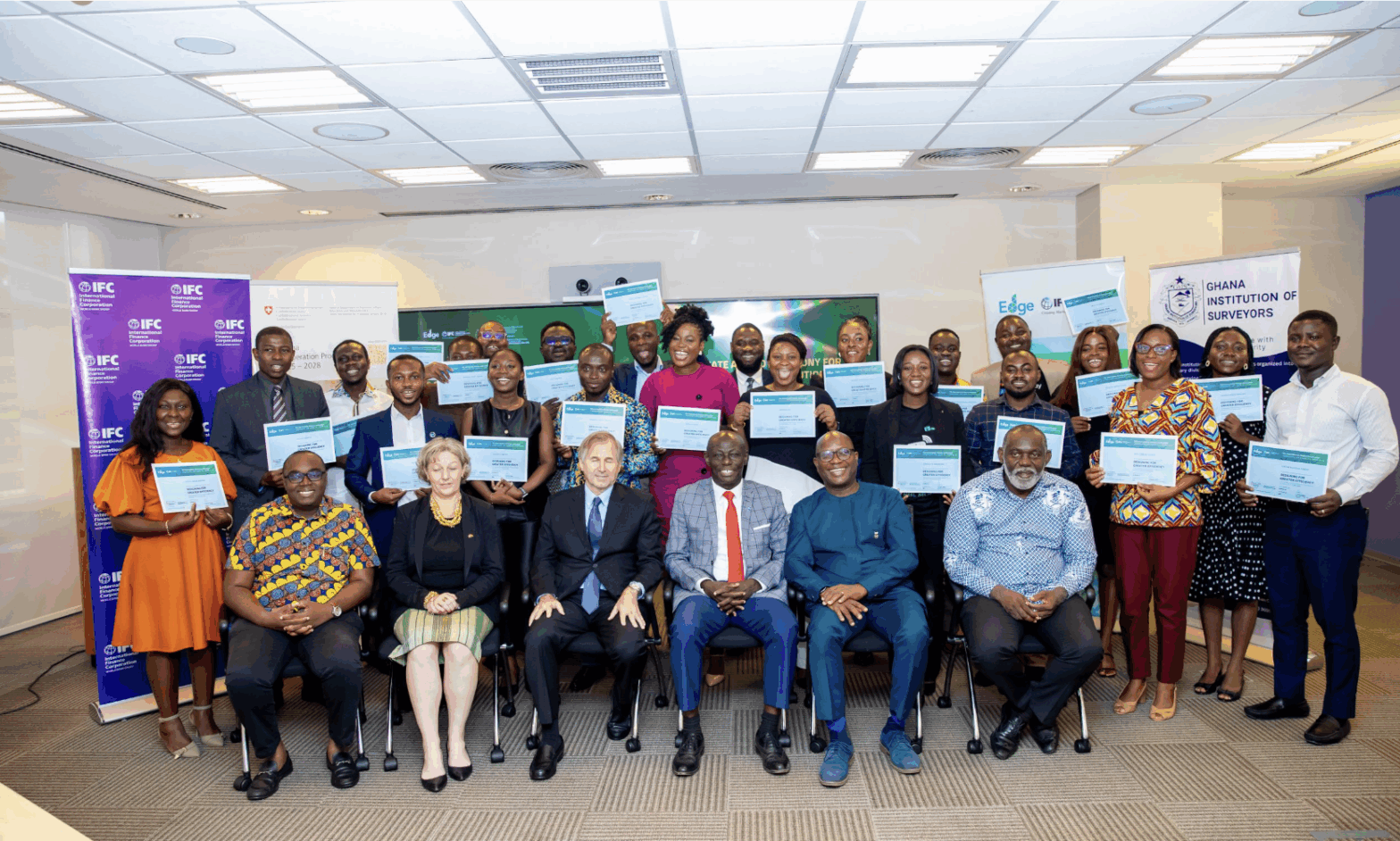The International Finance Corporation (IFC) has asked the banks in Ghana to expand their loan portfolios to support sustainable construction projects that are committed by the government and the private sector in order to increase efforts to reduce the country's CO2 emissions.
Kyle Kelhofer, Senior Country Manager for IFC Ghana, Liberia and Sierra Leone, said that the financing of sustainable construction projects offers environmental services and profitable investment returns for the banks.
In an exclusive interview with the Ghana news agency at the end of a certification program for some members of the Ghana Institution of Surveyors (GHIS) in Accra, he said that it would make a major contribution to reducing climate change.
Buildings and residences make up 40 percent of global emissions, a situation that Mr. Kelhofer described as an opportunity for the banking sector Ghanas to contribute to reducing climate change and at the same time extends their business activities into the growing market segment.
“Green buildings not only improve the environmental results, but also save their final result today and will really save their final result in the future to make the repayments of loans more secure,” he said.
Mr. Kelhofer therefore encouraged all banks and other financial institutions to design credit products for environmentally conscious construction projects across the country.
The company, he said, stated training and capacity support programs to help financial institutions understand the business case for sustainable construction projects.
He quoted the support of the company for the development of the third largest solar installation of the worldwide worldwide at LMI Holdings in Ghana as an example of their commitment to sustainable infrastructure investments.
Mr. Kofi Obeng-Ayirebi, President Ghis, said every material outputs a certain amount of energy. And we are all looking for the will to reduce the energy or carbon level that the material has built up in society.
Although environmentally friendly buildings could be expensive, they offer individuals, companies and the environment in the long term, he said, and asked people to set ventilated buildings in front of fully -made priorities.
Mr. Obeneng-Arybi asked the participants to implement the results of the training as specialists in order to support the striving for the country, to reduce carbon emissions and to have a sustainable environment.
He promised Ghi's constant advocacy for improving the guidelines and to clarify the public about the advantages of green buildings, including water and energy saving, minimized waste and pollution as well as an improved air quality of the interior and the health of the residents.
The DFGE program for the draft for greater efficiency (DFGE) Performance provided practical instruments to help skilled workers reduce energy, water and materials used for construction.
With the support of the Swiss State Secretariat for Economic Affairs (Seco), the IFC program was part of the efforts to promote better design decisions that are both environmentally friendly and financially solid in Ghana.
KWESI Asante, a beneficiary, said the training was effective because he started to implement some of the knowledge in his everyday life, including deliberate measures to reduce water waste.
He said that the knowledge acquired would also help to include environmentally friendly considerations in the development of reviews and to advise individuals, households and companies to build more environmentally friendly buildings.
Liability exclusion: The views, comments, opinions, contributions and statements by readers and participants on this platform do not necessarily represent the views or the guideline of the Multimedia Group Limited.
Liability exclusion: The views, comments, opinions, contributions and statements by readers and participants on this platform do not necessarily represent the views or the guideline of the Multimedia Group Limited.
